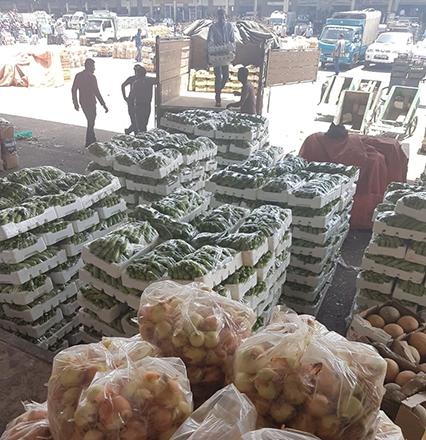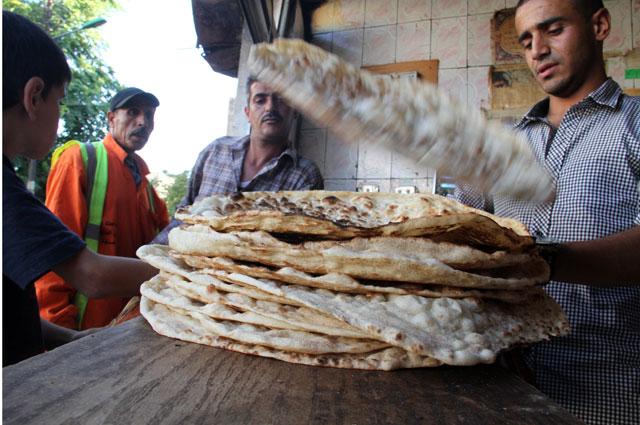You are here
Food demand drops by 20 per cent since start of Ramadan
By Maram Kayed - Apr 28,2020 - Last updated at Apr 28,2020

Contrary to previous years, demand on food commodities has decreased during the first five days of Ramadan, according to stakeholders in the sector (Photo by Amjad Ghsoun)
AMMAN – Contrary to previous years, demand on food commodities has decreased during the first five days of Ramadan, according to stakeholders in the sector.
Head of the General Association for Foodstuffs Merchants of Jordan Khalil Haj Tawfiq said that since the holy month started, the demand on foodstuffs has decreased by 20 per cent compared to the days that preceded it.
In a statement, Haj Tawfiq said that this “came as a surprise to merchants, who are used to sales significantly going up as the holy month starts.”
He attributed what he called the “weak purchasing movement” to the 6:00p.m curfew and thus the absence of family gatherings and banquets.
Haj Tawfiq added that “a large number of restaurants, which are the most active consumers of basic food supplies, have not been fully operational.”
Partner of Jerash Mall Raed Rifai told The Jordan Times in a phone interview that that the purchasing movement before Ramadan was “very good”, but has since declined in the early days of the holy month.
“In Ramadan, we usually stay open later than usual because people like to shop after iftar, which is currently not an option. On the other hand, I think that people are too tired to shop in the morning when they are fasting, so that leaves us with very little operating time,” he added.
Haj Tawfiq also pointed out that the livestock sector is “not organised under one umbrella, which means that the rate of slaughter has been low and the supply is not commensurate with the demand, which causes a shortage in the fresh meat and chicken that consumers may be looking for.”
Rifai echoed Haj Tawfiq’s claims by saying that the substitution of foreign brands with local ones has caused a “relative shortage of some items that consumers usually buy, which could be why they are not consuming as much as they previously did.”
This is the reason behind the rise in the prices of some products, especially fresh red meat, Rifai stressed.
Related Articles
AMMAN — A total of JD350 million was spent on food items during Ramadan across the Kingdom, a sector leader revealed Thursday.This number in
AMMAN — Head of the General Association for Foodstuffs Merchants in Jordan (GAFJO) Khalil Haj Tawfiq on Saturday affirmed that the food sect
AMMAN — Muhannad Abu Hija says he paid higher prices for fresh meat last Ramadan, a sentiment echoed by consumers across Jordan. Vegeta












